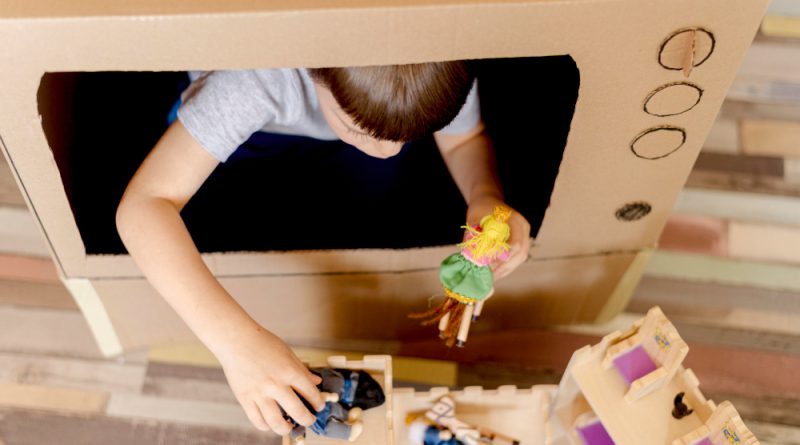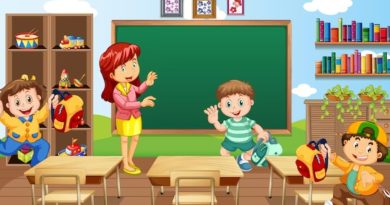The Importance of Play-Based Learning in Kindergarten
Play-based learning is a crucial aspect of early childhood education and development. It involves engaging children in real-life and imaginary activities, helping them develop creative and critical thinking skills.
Children enhance their understanding of concepts, language acquisition, communication skills, and focus through play. This post will explore the importance of play-based learning in kindergarten, its role in child development, and how it can be integrated into the curriculum.
The Role of Play in Child Development
Cognitive Development
Play-based learning contributes significantly to a child’s cognitive development by fostering problem-solving, creativity, imagination, and language and literacy skills.
When children are given opportunities to engage in play, they begin to understand the world around them and learn how to navigate complex situations. For instance, playing with blocks encourages children to think about shapes, sizes, and spatial relations, which helps develop their mathematical understanding.
Physical Development
In addition to cognitive development, play-based learning also supports the physical development of children in kindergarten school. Motor skills, balance, and coordination are all enhanced through play.
Activities such as running, jumping, and climbing help children develop their gross motor skills while manipulating small objects like crayons, beads, or puzzle pieces enhances fine motor skills.
Social and Emotional Development
Play-based learning is essential for social and emotional development in young children. Children learn to communicate effectively, collaborate with their peers, and develop empathy and understanding of emotions by engaging in play. When children negotiate rules during play or share toys, they learn essential social skills and practice emotional regulation.
Key Elements of Play-Based Learning in Kindergarten
Child-initiated Learning
For play-based learning to be effective, it must be child-initiated. This means allowing children the freedom to choose what they play and how they play. Encouraging self-direction and unstructured exploration allow children to express themselves and explore their interests.
Teacher-supported Learning
While play should be child-initiated, it is also essential for teachers to support and guide children through their learning experiences. Teachers can encourage play-based learning by asking open-ended questions, offering guidance, and using inquiry-based teaching methods to help children connect their play and academic content.
Play Environment
Creating a safe and stimulating play environment is crucial for promoting play-based learning in kindergarten. This includes providing various materials, toys, and tools that cater to different interests and abilities and ensuring that the space is safe for children to explore and engage in play.
Benefits of Play-Based Learning in Kindergarten
Pre-literacy Skills
One of the significant advantages of play-based learning is its impact on pre-literacy skills. Activities such as letter recognition and phonemic awareness are enhanced through play, helping children develop a strong foundation for reading and writing.
Social and Emotional Skills
As mentioned earlier, play-based learning fosters social and emotional skills development. Conflict resolution, emotional regulation, and empathy are cultivated through play, helping children navigate social situations and build healthy relationships with their peers.
Creativity and Imagination
Play-based learning encourages creativity and imagination, allowing children to express themselves through storytelling, role-playing, and artistic activities. Children learn to think outside the box and develop innovative solutions to problems by engaging in imaginative play.
Language and Literacy Skills
Through play, children develop essential language and literacy skills, such as vocabulary development, listening and speaking skills, and narrative abilities. For example, engaging in dramatic play helps children practice using language in context, which is crucial for developing their communication skills.
Motor Skills
Finally, play-based learning enhances motor skill development, both fine and gross motor skills. Children who engage in play are more likely to develop strong hand-eye coordination and balance, which are essential for everyday activities.
Integrating Play-Based Learning into the Kindergarten Curriculum
To effectively integrate play-based learning into the kindergarten curriculum, it is essential to balance structured and unstructured play. This means providing children opportunities to engage in guided activities and independent exploration. Additionally, connecting play to academic content helps children see the relevance of their learning experiences and reinforces important concepts.
Strategies for Promoting Play-Based Learning at Home
Parents have a significant role in promoting play-based learning at home. By creating a supportive environment that encourages self-direction and unstructured exploration, parents can help their children develop essential skills and abilities. Participating in play activities and asking open-ended questions can also foster dialogue and enhance learning outcomes.
Challenges and Potential Drawbacks of Play-Based Learning
Despite its numerous benefits, play-based learning may need more support from those who adhere to traditional teaching methods. Misconceptions about play as “wasted time” or concerns about balancing play with academic demands can hinder the adoption of play-based learning in kindergarten. However, research has shown that play-based learning contributes positively to children’s development, making it an essential component of early childhood education.
Wrapping Up
Play-based learning is vital to kindergarten education, contributing to cognitive, physical, social, and emotional development. By integrating play-based learning into the curriculum and supporting children in their play experiences at school and home, parents and educators can help young learners build a strong foundation for future success.
Moreover, considering the Singapore school fees, investing in your child’s play-based learning experiences is an investment in their future, ensuring they develop essential skills and abilities to thrive in their educational journey.




